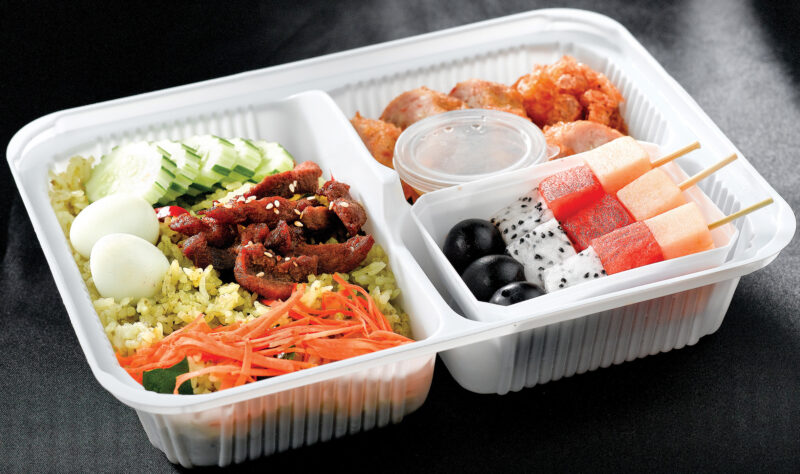The latest food scare of a leading instant noodle brand has left consumers speculating about the safety of packaged and processed foods. The next time you buy such products, read the labels judiciously. Dr Parul Sheth offers a cheat sheet to help you understand what they state and separate the wheat from the chaff.
Today, processed and packaged foods have completely taken over our lives. They come in handy especially when you don’t have much time to cook. All you have to do is, enter a grocery store, buy some quick-fix products and make them in a jiffy. But think about it. When was the last time you read the label while buying these items? Even if you read the labels, it is sometimes difficult to spot the toxic and unhealthy ingredients at one glance. There can be several hidden chemicals in the product that may not be listed individually. The best way out is to know the essential food facts and act with prudence.
Some facts about foods
With the latest noodle scare of a leading food brand, every packaged food is suspect. The Foods Safety and Standard Authority of India (FSSAI), has been on vigil since its inception in 2011. Yet there are several chemical ingredients added to processed and packaged foods, which pose a great risk to your health. Processing strips the food of its flavour, texture, colour and nutrients such as soluble fibre, ‘good’ fats or antioxidants. Foods are unpalatable in this form. In order to retain or enhance the taste and texture of food products or improve its appearance, manufacturers add artificial flavours, colours, sweeteners, preservatives and nutrients, etc. These processed and packaged boxes contain several hidden ingredients that can pose health problems in the long run. The safest way to remain disease-free is by avoiding processed and packaged foods. Another option is to check the products carefully, read the labels on them and avoid foods with specific additives that are detrimental to your health.

Stay away from the risk
Here’s a list of some food additives that are harmful:
Artificial flavours:
While reading the label, look out for ‘artificial flavour’—which could mean that a single flavour may contain not less than 50 chemicals. Artificial flavouring, diacetyl, is generally added as a butter flavour to microwave popcorn. Studies have shown that diacetyl affects brain health and is known to trigger Alzheimer’s disease. Artificial flavours also give rise to allergies. Beware of genetically engineered flavour enhancers, which are listed under the ‘artificial’ or ‘natural flavour’ label.
Monosodium glutamate (MSG), a flavouring chemical, is commonly added to Chinese food. It is present in frozen dinners, salad dressings and dips too. MSG can excite your brain cells, thus causing potential damage such as Alzheimer’s disease, Parkinson’s disease and triggering learning disabilities in the long run. It also leads to adverse reactions like headache, swelling, numbness, nausea and palpitations, etc.
Artificial colours:
Artificial food dyes labelled as ‘colours’ make the food look appetising. Candies, beverages, baked foods, cereals, all contain food dyes. Hyperactivity and hypersensitivity in children, cancer, and organ damage are some of the health hazards due to the consumption of foods with high doses of dyes. Look out for brilliant blue, indigotine, tartrazine and sunset yellow.
Preservatives:
Food preservation has been a common practice since ancient times. Salt was used to preserve meat, fish and pickles; sugar was used to preserve fruits; and vegetables were dried, pickled or fermented for later use. Preservatives increase the shelf life of foods. In recent times, manufacturers are adding butylated hydroxyanisole (BHA) and butylated hydroxytoluene (BHT) to preserve cereals, potato chips, meats, vegetable oils, etc. These affect the brain, causing behavioural changes in people.
Sodium benzoate is added to soft drinks, fruit juices and salad dressings. Hot dogs, deli meats and bacon are laced with sodium nitrite. You also need to look out for polysorbate (60, 65 and 80), sulphite, potassium sorbate and tertiary-butyl hydroquinone (TBHQ). Most of these chemicals cause cancer.
Artificial sweeteners:
Sucralose or splenda, aspartame, acesulfame potassium and saccharin are commonly used as sweeteners. These can lead to weight gain. Aspartame is a neurotoxin that can attack your brain cells. Splenda is known to cause inflammatory bowel disease and can destroy your normal gut bacterial flora. The adverse effects include memory loss, headache and mood changes, etc.
Another synthetic sweetener high-fructose corn syrup (HFCS) is a cheap substitute of sugar. It is added to frozen foods, bread, hamburger, beer, soft drinks and ketchup. Research suggests that HFCS raises the risk of heart disease and diabetes and can damage your liver. You can spot fructose the sugar present in HFCS as ‘corn syrup solids’, ‘corn syrup’ and ‘corn sweetener’.
Trans fat:
Synthetic trans fat or partially hydrogenated fat from vegetable oil is added to chips, crackers, baked foods, muffins and fried foods. Trans fat helps increase the shelf life and gives the desired consistency to the foods. It raises the level of ‘bad’ low-density lipoprotein (LDL) cholesterol and lowers the ‘good’ high-density lipoprotein (HDL). It also increases the triglyceride levels in the blood and clogs arteries.
Trans fat consumption has been linked to cancer, diabetes and immunodeficiency. Check the list of ingredients or words such as ‘partially hydrogenated’, ‘fractionated’ or hydrogenated’. Avoid foods that contain DATEM (diacetyl tartaric acid esters of monoglycerides) and mono
and di-glycerides.

Choose your food intake judiciously
Buy wholegrain foods:
White bread, rolls, sugary cereals and white rice, etc. are known to raise the risk of heart attack by 30 per cent. Refined grains together with refined sugar are a bad combination. Do not get fooled by the deceptive labels. Only choose whole-grain bread, wholegrain breakfast cereals, oats, brown rice and bran, etc. from the rack.
Beware of hidden salt:
A lot of processed foods contain hidden salt. Some canned foods like vegetables and soups, sauces, burgers, fries and preserved meats such as bacon or ham, etc. also have salt in them. Salt or sodium chloride also occurs naturally in some foods. Salt regulates the blood pressure and maintains the body’s fluid balance and many other body functions. Experts recommend an intake of 1,500 milligram of sodium each day, which is approximately three-fourth teaspoon of salt.
However, if you have high blood pressure, then the intake should be reduced. So it’s wise to read the ‘nutritional facts’ carefully on the label to get the real numbers. Remember, ‘sodium-free’ foods may not be really salt free.
Avoid ready-to-eat meals:
These foods are full of dehydrated vegetables, which are stripped of nutrients and contain fibre, calories, oil, sugar and butter, etc. The additives in these meals have a permissible limit. However, eating them excessively may cause harm to your kidney and liver. The same applies to packaged soups. These have artificial flavours and colours which can cause health issues, if consumed on a daily basis.


